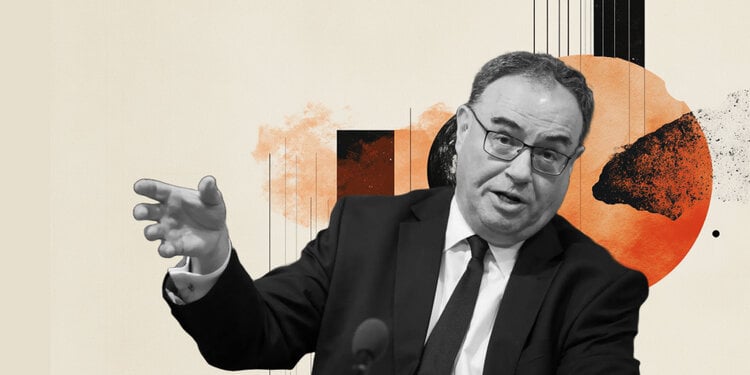The Federal Supreme Court (STF) has on the agenda for judgments this Wednesday (24) a case that deals with the decriminalization of possession of drugs for personal consumption. The analysis has already started, but was interrupted in 2015. Since then, the Court has not returned to judge the matter.
The constitutionality of article 28 of the Drug Law of 2006 is under discussion. The norm establishes that it is a crime to acquire, store or transport drugs for personal consumption.
Experts heard by CNN said that the Court has the possibility to alleviate the negative effects of the so-called “war on drugs”, by defining the decriminalization of possession for consumption. The measure, they assess, is already adopted in other countries and can contribute to improving the fight against organized crime and treating users from a public health perspective.
The case has recognized general repercussions, that is, the understanding signed by the STF in this judgment should guide similar cases throughout the country. Despite the case’s potential, there is an understanding among ministers that more specific definitions of the issue should remain with Congress.
The scope and effects of a decision by the Court will depend on the ministers’ position on the specification of each type of drug, in case there is a definition for decriminalization. The result may not even come now, as a minister may ask for a review (more time for analysis) and postpone the outcome.
Started almost eight years ago, the judgment already has three votes to no longer consider possession of marijuana for personal consumption a crime. Ministers Gilmar Mendes –who understood that it should apply to all drugs–, Roberto Barroso and Edson Fachin, who restricted their positions to the use of marijuana, voted in this sense.
When voting for decriminalization, Gilmar proposed that there are no more criminal consequences for those who use drugs. The minister, however, defended the maintenance of administrative sanctions, with the exception of the penalty for providing services to the community.
Another possible consequence of a decision by the Supreme Court to decriminalize consumption is the setting of objective parameters to differentiate user from dealer – something that current legislation does not do.
So far, only Barroso has moved in that direction. He proposed that the possession of up to 25 grams of marijuana or the planting of up to six seedlings be adopted as a reference for differentiation. These criteria would be valid until Congress regulates the matter.
Fachin was also in the sense of delegating to other powers the function of defining some parameter. He proposed that the STF declare as a legislative attribution the establishment of minimum quantities that serve as a parameter to differentiate user and dealer, and that bodies of the Executive Branch issue provisional quantity parameters for differentiation.
The trial was suspended in September 2015 due to a request for a review (more time for analysis) by Minister Teori Zavascki, who died in a plane crash in 2017. Deputy of the magistrate, Alexandre de Moraes will be the next to vote when the process resumes.
Ministers analyze an appeal filed by the Public Defender of the State of São Paulo in favor of Francisco Benedito de Souza. In 2010, he was sentenced to two months of community service after being caught inside his cell at the Provisional Detention Center in Diadema (SP) with three grams of marijuana.
criminal policy
Criminal lawyer André Kehdi, a partner at Kehdi Vieira Advogados and former president of the Brazilian Institute of Criminal Sciences (Ibccrim), considers the trial as representative of one of the most important criminal issues in the country today.
“The STF has the possibility, with the judgment, to try to mitigate a little the damage of the war on drugs legislation, which has historically been directed against discriminated groups”, he said.
According to the expert, one of the consequences of the current legal treatment of the issue is the exponential increase in the prison population. “The STF itself has already recognized the unconstitutional state of affairs of the penitentiary system,” he said. “If it is coherent, it will advance in the judgment, in line with Gilmar Mendes’ vote, which is more comprehensive, to start changing the panorama in the country”.
Kehdi also believes that the current norm is generic, and allows judges to interpret the circumstances of drug possession on a case-by-case basis – whether for personal consumption or for trafficking. The situation, according to the lawyer, favors discrimination of a racist nature.
“There are studies that demonstrate that, when the thing is open and general, it is up to the judge to decide on a case-by-case basis. What you see is a clearly discriminatory and racist criterion in decisions, ”he declared.
Indefiniteness
Lawyer Ricardo Prado Pires de Campos, master in Criminal Procedural Law and retired prosecutor, assesses that it is still unpredictable to speculate on what the outcome of the Supreme Court trial will be, despite the partial score indicating a trend.
He understands that a decision by the Court on the subject will serve to reopen the debate. The development of the subject, in his view, is hostage to the polarization of society, which restricts the discussion.
“Drug repression policy has become the nerve center of criminal policy in recent years, with catastrophic results,” he said. The specialist said that prison is not a sufficient instrument to combat the spread of drugs, as it is a “highly profitable economic crime”.
“As long as it is profitable, there will be people willing to take the risk (this is inherent in capitalism),” he declared. “Under the current system, traffickers and other beneficiaries keep the profits; the State bears the loss (construction and maintenance of prisons, among many other expenses)”.
Criteria
The constitutionalist lawyer Henderson Fürst also sees an eventual decriminalization having an effect in combating the high rate of incarceration and in contesting the “war on drugs”, in addition to allowing that “drug consumption is effectively treated as a public health issue, and not of public safety”.
He declared to CNN view positively the possibility of the STF establishing criteria, albeit provisional, to differentiate between those who carry drugs for their own use and those who aim to deal.
“Such criteria would be very welcome, either to pacify understanding, or to provide legal certainty and protect minority groups that suffer from the discretion of the police authority”, he said.
He, however, said he did not see the judgment defined for the position, foreseeing the possibility of requests for review (which suspend the analysis) and divergent votes from at least three ministers: Alexandre de Moraes, Nunes Marques and André Mendonça.
“It is worth remembering the trajectory of Minister Alexandre de Moraes as Minister of Justice and Secretary of Public Security of São Paulo, with public policies in the understanding of the constitutionality of the device; and also Ministers Kassio Nunes [Marque] and André Mendonça, who also have a history aligned with such an interpretation”, he said.
The specialist said that he disagrees with the positions of Fachin and Barroso, who proposed the decriminalization of marijuana only.
“Countries that decriminalize possession for individual drug consumption and change the approach from public safety to public health, register a drop in drug consumption rates”, he said. “If this happens only with marijuana, the consumption of other drugs will remain high and without the adequate approach”.
Source: CNN Brasil
I’m James Harper, a highly experienced and accomplished news writer for World Stock Market. I have been writing in the Politics section of the website for over five years, providing readers with up-to-date and insightful information about current events in politics. My work is widely read and respected by many industry professionals as well as laymen.







